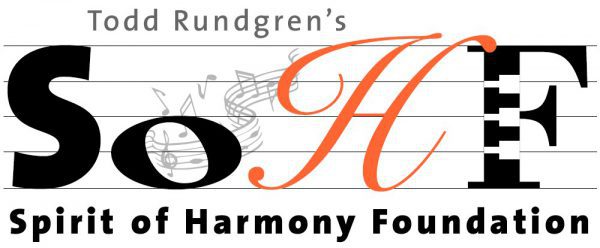ADMINISTRATIVE:
- Low Overhead. The Foundation takes great pride in the fact that we operate with practically no overhead. In 2015, every dollar we spent was 91.4% Program expenses and 8.6% Administrative expenses. For 2016, we are projecting 90.1% Program expenses and 9.1% Administrative expenses. In generally accepted practice, the top-rated nonprofits keep their overhead and general operating expenses under 25 percent of the money raised.
- Board and Advisory Board. We have assembled an effective Board and Advisory Board of music professionals, nonprofit professionals, business professionals, and academic professionals in our leadership team, with a full range of skillsets.
- Strategic Plan. We refined our Mission and Vision, which resulted in a Strategic Plan that was adopted by the Board of Directors.
- Business Practices. All reports and official forms filed on time. All donations accurately logged and acknowledged. Two online auctions completed with all items promptly shipped. Year-end tax letters sent to all donors after December 31. Ongoing responses to inquiries and opportunities via email, telephone, and social media.
- Website, Blog, and Social Media. Continually updated and very active.
PROGRAMMATIC:
- Direct Service/Grants. Over the course of the year, the Foundation made direct monetary grants and provided services (matching programs with volunteers, instrument donations, publicity, other types of support). These are the programs that received our monetary grants:
- Arkansas Youth Symphony Orchestra
- Mabelvale Drum and Groove Line
- Make Music NOLA
- Play On, Philly!
- Roots of American Music
- Seattle Music Partners
- Symposium. On Saturday, April 18, 2015, the Spirit of Harmony Foundation hosted a panel to showcase and explore the compelling reasons why children should have access to music education, “The Symposium for the Moral Imperative of Music Education.” The purpose of the Symposium, attended by approximately 300, was to further the dialog about music education, and to stimulate activism at a grassroots level.
- Each presentation has been edited to short videos for use on the website and social media.
- The Economic Impact of Music Education is an area that needs empirical data and analysis. Phoenix Center for Advanced Legal and Economic Public Policy Studies, under the direction of Dr. George Ford, will be leading this initiative.
- Relationships. Since its founding, the Foundation has developed close relationships with many direct-service programs, individual artists/teachers, and advocacy programs around the country. Our Partnerships will be expanded with our Database Program, which is part of our Strategic Plan.
- Social Media. Through daily posts on Facebook and Twitter, the Foundation continually spreads awareness about the importance of Music Education in particular and music in general. The Spirit of Harmony Foundation fan page on Facebook has nearly 3500 “likes” and is very active.
- Special Events. The Foundation cultivates very active partnerships with various Todd Rundgren groups, and plays an active role in events and activities for Todd fans. Supporters are also encouraged to have their own fundraising events in their local communities, and popular events have been fan-run in Cleveland, Seattle, Santa Ana, CA, Chicago, and Kansas City, as well as online.
- Database Project. Planning and groundwork done for the development of this project, which will serve music programs by matching needs with resources.
- New Projects in the Works. Developing high-profile activities for 2016.
Goals – ADMINISTRATIVE:
- Financial Reporting/Budget. A detailed organizational budget for FY 2016, and quarterly financial reports to the Board of Directors.
- Monthly Updates. Continue monthly updates to the Board and Advisory Board.
- Board meetings (conference calls) as scheduled and Board Ballots as needed.
- Social Media. Continue to update and refine website. Maintain and grow social media. Continue to post high-quality articles in “Music In A Word” blog. Create a new quarterly newsletter for email list.
Goals – PROGRAMMATIC:
- Database Project. The purpose of this project is to create a two-tier process for music programs to seek support from the Foundation.
- Tier One: A questionnaire to determine whether the applicant organization falls within the Foundation’s Scope of Service to pre-screen for eligibility.
- Tier Two: United States organizations that provide instrument-based music education for children, beginning at as young an age as possible, ideally for a minimum 4 hours per week, for a minimum of 2 years will get a much more detailed questionnaire, that will gather information on how many children they serve, demographic information, and their program’s specific needs, whether directly or through value-added networking.
- Expanding Base of Supporters. The primary source of the Foundation’s individual donations is the fan base of Todd Rundgren. This support will be expanded to the fan bases of other artists and other music supporters.
- Advocacy Toolkit.
- Videos from the Symposium.
- Testimonials from musicians – telling their story. To be added.
- Economic Study. To be done.
- Seeking a start-up music program with which we can “test drive” the Toolkit in practical terms.
